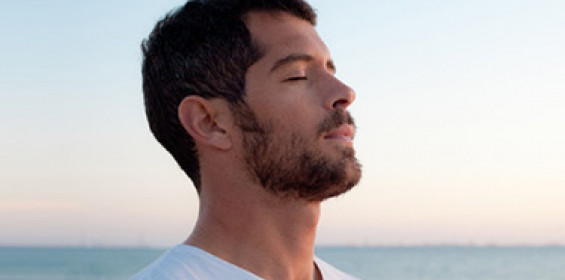Maturity isn’t something you either have or don’t have. It’s a spectrum and a variable. It’s how much you have, and depends on your reactions to the events in your life. Some people are better prepared for certain specific happenings in their life, and thus act in a stable, calm, and collected manner with the right and kind things to say. Others might have anxiety issues, fear of public speaking or social gatherings, ADHD, depression etc. which makes them act in a not-so-mature way in the same situations.
When we speak of it being a spectrum and a variable, the whole quality becomes relative, and everyone has a place in it. So, all of us are mature in our own ways. Let’s keep that in mind - always.
Maturity is a characteristic that is perceived as something positive and as an asset that can actually prove to be stressful for those who believe that they don’t have it.
Are you or aren’t you?
We compare. We compare each other based on our maturity, right? How many times we must have said, ‘I am not mature at all. But look at her, or look at him. That person is so young and still so mature. I wish I was like that person!’
Sometimes, we judge whether a person is mature just by how he or she looks. Their face, their clothes, and the way they stand and walk. If a person has grey hair and wrinkles, then he or she has to be mature. To be honest, it’s not an entirely inaccurate mode of observation. Maturity is something you cultivate with experiences. The more experiences you’ve had in life, chances are, more maturity you have when you encounter these experiences again.

You probably know how to react in these situations now that is both conducive to you and others. So an older gentleman in his sixties have more chances of being more mature in most situations than a teenager who is still discovering and making sense of the world around him.
What makes a person mature?
What are the personality traits of a mature person?

1. Maturity is being kind and compassionate: We are all selfish, but a mature person is wise in his selfishness. He knows maturity lies in not just seeking his own personal benefit but of others around him.
2. One of the biggest signs of maturity is the ability to create a positive and cohesive environment. A negative and stressful conversation with skillful and mature intervention can turn into a fun and joyous one.
3. Maturity is a by-product of characteristics such as relaxation and stability, especially in the face of adversity. A mature person handles a tough situation with a strong mind. He looks at the bigger picture and responds wisely, rather than succumbing to the first thought or feeling the adverse reaction may trigger.

4. A mature person is honest, humble, and grateful. Someone who is basically what we call ‘a nice person’. A mature person doesn’t lie or cheat, is not arrogant or doesn’t talk too much about himself/ herself and understands she/he is fortunate to have received all the things in life.
5. A mature person is constantly learning irrespective of who the teacher is; is constantly discovering himself/ herself, sees a teacher in all and will work hard, and change.
Especially in the youth, being mature is equated with being old and dull. ‘A mature person is an old person and thus has no joy or enthusiasm for life’ - the thought couldn’t be more wrong. Moreso today, since it is one of the mental characteristics we seek to develop at all times, and one we are immensely attracted to. Happiness and peace directly results from our maturity. If there is something in life we inherently move towards, it is more happiness.
Greeks normally call this, ‘Eudemonia’ or in simpler terms long-term happiness, well-being and human flourishing. For example, a young adult not choosing to get drunk in a party with all his friends who peer-pressure him into drinking is a sign of maturity and the direct reward of that maturity will be long-term well-being. Therefore, maturity is a characteristic that’s worth cultivating and working towards in our lifetime.
How to cultivate maturity?
Here are key things we can do in our everyday lives to cultivate it:
1. Get a moral compass: Understand ethics. Many people in the population today are growing without an understanding of ethics. Nowhere in school or at home are people discussing its importance, especially in these times. Our actions with no moral compass to guide would not differ from the actions of a wild horse competing in a derby.
2. Learn to prioritize long-term happiness over a short term: Chasing sensual pleasures and following your feelings, without taking into account the repercussions is a mental pattern we need to be mindful of. Choosing an action that’s rewarding in a long term is the new cool.
3. Be a listener: The best gift you can give someone is your gift of attention (Hyperlink it Attention article by Aman), and also listening to others is a sure short way of directly assimilating the experiences of others. Listen to listen and not wait for your turn to speak.

4. Become a part of the group: Don’t aspire to be the center of attraction everywhere. There is nothing wrong in being unique or being famous, but you shouldn’t somehow think this makes you a better person than them or you deserve more attention.

5. Adopt a healthy lifestyle: A good parameter to gauge whether or not your lifestyle is healthy is the quality of your sleep. Sleep deprivation is a reality, and 7-19 percent of Americans reportedly suffer from this condition. Sleep deprivation directly impacts our brain functioning and emotional well-being. Get a routine, eat a balanced diet, do physical exercise, learn yoga and meditation; you know the basics.
6. Meditate: Besides making you calm and stable, it teaches you to be introspective. So the next time you speak or act, you can introspect whether the action will affect your well-being and the well-being of others. Try out the Sahaj Samadhi Meditation program near you.
If you loved reading this, then you should head to these thoughts by Gurudev Sri Sri Ravi Shankar. Gurudev says an important sign of maturity is worship. Interesting, right?
Based on inputs from Dr. Prema Sesadri, Faculty, The Art of Living.
We’d love to hear from you. Leave your comments @artofliving


































